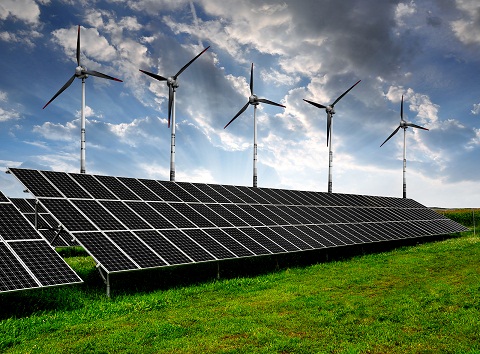?The Lebanese Association for-Energy Saving and Environment An active advocate of renewable energy policies
Establishment
The Lebanese Association for Energy Saving and Environment, known by its French acronym ALMEE, was established in 1992 to raise awareness on the importance of using renewable energy and reducing the use of other energy sources such as fossil and nuclear energies, flagging up the harmful implications for both mankind and the environment.
The Association believes that the proper management of energy and the progress towards renewable energy goals can contribute in large measure to the social and economic growth of the country. The diversification of energy sources - solar, wind, biomass, hydraulic, wood, etc - and the advances in renewable energy technologies are sure to increase both energy efficiency and the possibility of attaining better energy services at affordable prices, which would improve education and healthcare in several rural areas and provide more job opportunities in the industrial sector - distribution, operation and maintenance - thus ensuring new income sources.
A glimpse into ALMEE projects
ALMEE has joined with local, regional and international partners – from both the public and the private sectors - to promote better management of energy and more sustainable environmental practices. In cooperation with the Lebanese University and ADEME - Agence de l’Environnement et de la Maitrise de l’Energie - in GRASS - Green Recovery and Sustainable Solutions - a new approach to promote green building construction in Lebanon has been proposed. GRASS is a rating system for both commercial and residential buildings aimed to mitigate the negative impacts of buildings on the environment including CO2 emissions, heat island effect, intensive energy consumptions and so on.
ALMEE has mapped possible sites of microalgae production in Lebanon to gauge whether it is possible to produce oil, and consequently energy, from microalgae. A study conducted in collaboration with AUB and the EU revealed that the 22 species that were identified from several Lebanese coastal areas have the potential to serve as biodiesel, antibiotics, nutritional supplements and even promote organic agriculture.
Knowing that solar energy in the region is abundant yet not sufficiently exploited, the association has also moved to promote solar potential by engaging in SOLATERM, an EU-funded project devoted for the application of large solar thermal systems for water and space heating as well as cooling. It has also been part of the SOLAR BUILD project which is geared towards the integration of solar technologies into buildings in Mediterranean communities. In fact, the association efforts in raising awareness on solar resources date back to 1994.
ALMEE has also been active in sensitizing the general public about the importance of thermal insulation for buildings, which allows consumers as well as the government to significantly reduce energy costs and bills. In addition, ALMEE has also been involved in issues surrounding the depletion of ozone since 1992.
In collaboration with the Makhzoumi Foundation and other consortium partners, ALMEE has engaged in the “Lebanese Youth as Messengers for Sustainability” project, which fosters a culture of sustainability among Lebanese children, youth and their families and local communities, in order to enhance a sustainable development in the country and sustainable relationships in the Mediterranean region.
ALMEE delivers a number of lectures in schools, universities and even municipalities and is keen on putting the research and studies it conducts with international organizations at the disposal of the Lebanese ministries of energy and environment, to enable them to draft and implement sustainable energy-saving and eco-friendly plans and policies.








Leave A Comment